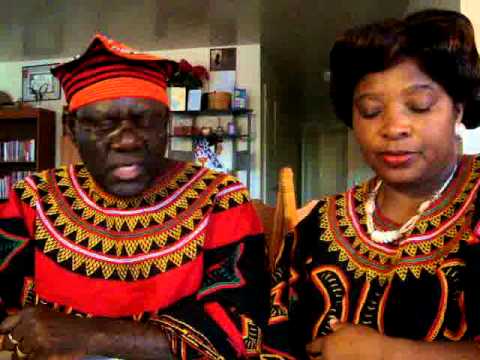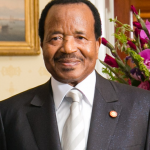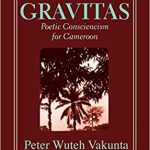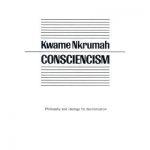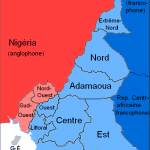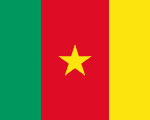Peter Wuteh Vakunta and his wife Mrs Anasthasia Vakunta. Still from Youtube video that introduces learners to greetings in Ngiehmehkoukeuh, a Bantu language spoken in Bamunka village in Ngoketunjia Division of Cameroon.
While Gravitas is a great accomplishment by Vakunta, we did not always agree with him. For instance, a few critical notes can be made regarding consciencism as a chosen inspiration. A questionable point in the theory is that Nkrumah emphasises the need for one single revolutionary party: “A people's parliamentary democracy with a one-party system is better able to express and satisfy the common aspirations of a nation as a whole, than a multiple-party parliamentary system” (Nkumah, 1970: 100-101). In reality, however, the integration of the Anglophone region into a strongly centralized unitary state during the leadership of both Ahidjo and Biya created many difficulties for Anglophone Cameroonians. We have spoken about this in the historical context. It thus seems that this aspect of consciencism goes contrary to the interests of the Anglophone community. Moreover, there is a discrepancy between the African unity propagated by Nkrumah and the Cameroonian unity for which Vakunta argues. Nkrumah argues that the liberation of one African country is meaningless and only the free development of each country will bring actual liberation (Smith, 1991: 33). As the title of the poem suggests, Vakunta only addresses the development and unity of Cameroon. Where the creation of consciencism is the goal, unity of Africa has to be on the agenda primarily. Without inclusion of all African countries, consciencism, understood through the words of Nkrumah, does not seem possible.
Besides Vakunta’s understanding of consciencism, we can ask questions about the validity of the theory itself. One line of criticism is that consciencism quickly turns simplistic, turning the world into binary oppositions between “African unity” and “Western individualism.” How can this framework be used without falling into these oversimplifications? Does it not romanticize the precolonial era? Going further, we can ask if consciencism was truly a philosophy of liberation, or just a vague framework supporting the cult of personality and the centralized rule of Nkrumah, as Henry Bretton argues in The Rise and Fall of Kwame Nkrumah? In short, while consciencism seems to work well for Vakunta, using it brings with it a number of difficulties.
Another line of criticism can be directed at Vakunta’s positionality and style. First of all, both in the poem and in real life, Vakunta chooses to leave Cameroon. This brings with it a number of difficulties: if he, as a self-proclaimed son-of-the-soil, does not see Cameroon as a country fit to live in, where can we find hope for the future of Cameroon? If even he leaves, who is to save the country from itself? Moreover, his departure from the country affects his perspective on Cameroon; he is now looking from the outside in. Related to this is the fact that he is very polemic, and, while he argues in favor of reunification, does not offer solutions He criticizes peoples’ representatives and, while he may be right in this regard, does not suggest how things are to be done otherwise.
Besides this criticism, we believe that Gravitas is an important work, both for Vakunta himself and for the Cameroonian community, inside and outside of Cameroon. Increasing the readership of this poem would contribute to a greater understanding of the Cameroon Crisis, and served as a motivation for this project.
To read our conclusion read here.

